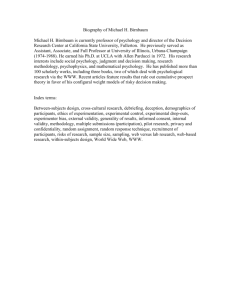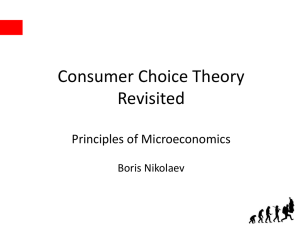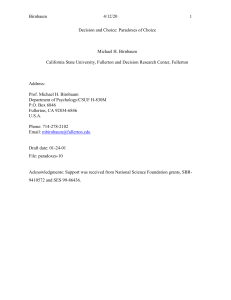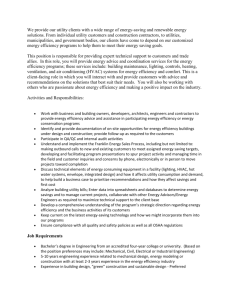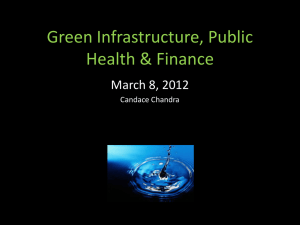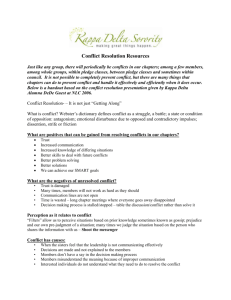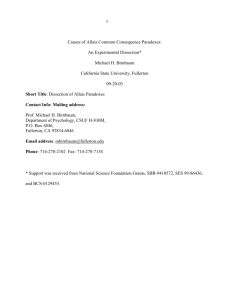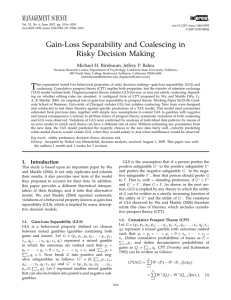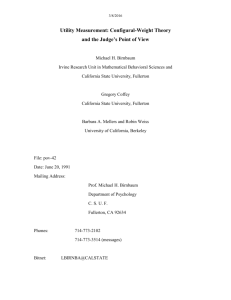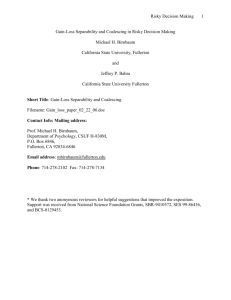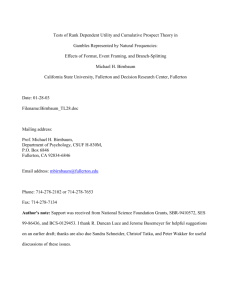press release - California State University, Fullerton
advertisement
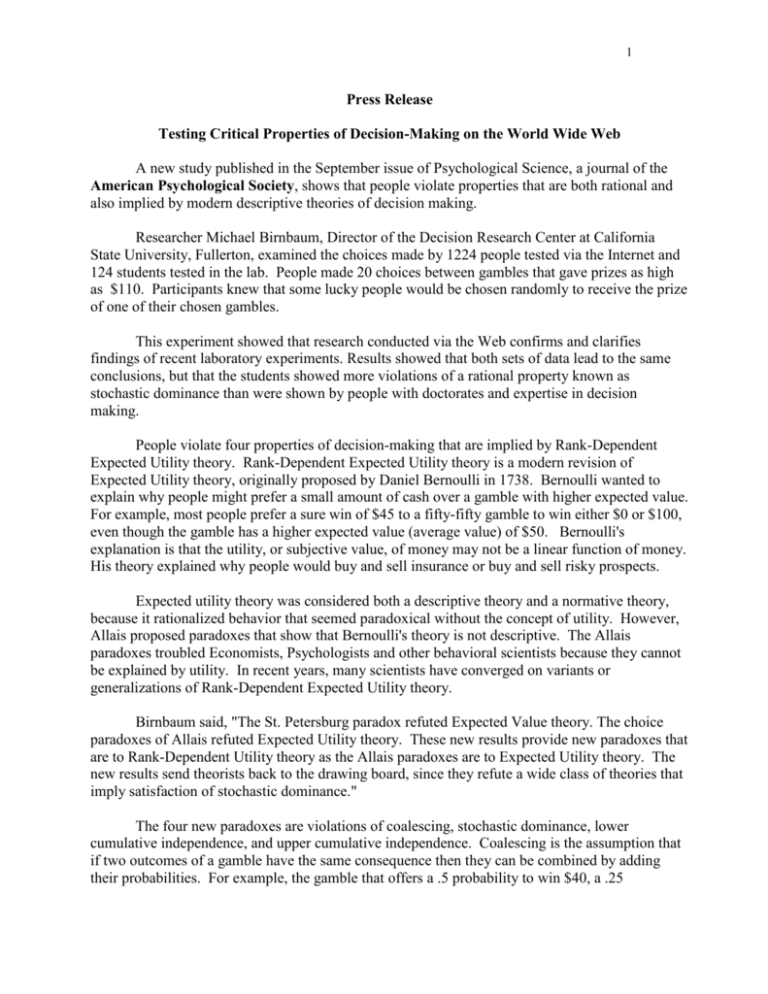
1 Press Release Testing Critical Properties of Decision-Making on the World Wide Web A new study published in the September issue of Psychological Science, a journal of the American Psychological Society, shows that people violate properties that are both rational and also implied by modern descriptive theories of decision making. Researcher Michael Birnbaum, Director of the Decision Research Center at California State University, Fullerton, examined the choices made by 1224 people tested via the Internet and 124 students tested in the lab. People made 20 choices between gambles that gave prizes as high as $110. Participants knew that some lucky people would be chosen randomly to receive the prize of one of their chosen gambles. This experiment showed that research conducted via the Web confirms and clarifies findings of recent laboratory experiments. Results showed that both sets of data lead to the same conclusions, but that the students showed more violations of a rational property known as stochastic dominance than were shown by people with doctorates and expertise in decision making. People violate four properties of decision-making that are implied by Rank-Dependent Expected Utility theory. Rank-Dependent Expected Utility theory is a modern revision of Expected Utility theory, originally proposed by Daniel Bernoulli in 1738. Bernoulli wanted to explain why people might prefer a small amount of cash over a gamble with higher expected value. For example, most people prefer a sure win of $45 to a fifty-fifty gamble to win either $0 or $100, even though the gamble has a higher expected value (average value) of $50. Bernoulli's explanation is that the utility, or subjective value, of money may not be a linear function of money. His theory explained why people would buy and sell insurance or buy and sell risky prospects. Expected utility theory was considered both a descriptive theory and a normative theory, because it rationalized behavior that seemed paradoxical without the concept of utility. However, Allais proposed paradoxes that show that Bernoulli's theory is not descriptive. The Allais paradoxes troubled Economists, Psychologists and other behavioral scientists because they cannot be explained by utility. In recent years, many scientists have converged on variants or generalizations of Rank-Dependent Expected Utility theory. Birnbaum said, "The St. Petersburg paradox refuted Expected Value theory. The choice paradoxes of Allais refuted Expected Utility theory. These new results provide new paradoxes that are to Rank-Dependent Utility theory as the Allais paradoxes are to Expected Utility theory. The new results send theorists back to the drawing board, since they refute a wide class of theories that imply satisfaction of stochastic dominance." The four new paradoxes are violations of coalescing, stochastic dominance, lower cumulative independence, and upper cumulative independence. Coalescing is the assumption that if two outcomes of a gamble have the same consequence then they can be combined by adding their probabilities. For example, the gamble that offers a .5 probability to win $40, a .25 2 probability to win $100 and .25 to win $100 is the same as a fifty-fifty gamble to win either $40 or $100. If people satisfied stochastic dominance, then if one gamble gives a higher than or equal probability of winning more than x for all x, one should not prefer the gamble with the lower probability of higher outcomes. Birnbaum found a recipe for violation, based on a rival configural weight model. Birnbaum and Navarrete tested this choice in the lab: A: .10 to win $10 B: .05 to win $10 .05 to win $90 .05 to win $12 .85 to win $96 .90 to win $96 Most people choose A over B, even though B stochastically dominates A. The new research confirms that the result is due to violation of coalescing. The experiments were designed to test a prediction of a configural weight model that does not satisfy coalescing, and thus violates these implications. Birnbaum said, "This finding shows how research conducted via the Web can confirm and clarify results observed in the laboratory. By conducting the experiment via the Web, it was possible to reach a more diverse, international sample in which education in decision making can be correlated with violation of critical properties. The Web method makes it possible to conduct research more rapidly and with more diverse samples than was previously possible. " Birnbaum has recently completed two books on conducting research via the Web. One is a textbook that explains how to conduct and analyze Web research. The other is an edited book intended for professionals with chapters on specialized topics of Web research. A mathematical model is a precise statement of a theory that can be fit to the data and tested. In some tests, data are obtained before the model is fit. In this case, however, the predictions were calculated and published by Birnbaum before the experiments were conducted. The data systematically violated the predictions of the Rank Dependent Expected Utility theory but agreed with the predictions of the configural weight theory. "The violations of stochastic dominance and the two cumulative independence properties are examples where a prediction was made from two theories before the experiment was conducted. In this case, a clear result was observed that refuted on class of theories in favor of the other." To participate in an on-line decision making study, use your Web browser to visit: Http://psych.fullerton.edu/mbirnbaum/exp2.htm For a copy of the research article, contact the American Psychological Society at 202-7832077 x 3032, or at kbourke@aps.washington.dc.us. For more information on the research, contact Birnbaum at mbirnbaum@fullerton.edu. Psychological Science, a journal of the American Psychological Society, explores research, theory, and application in psychology and related sciences. The American Psychological Society is a non-profit membership organization of more than 15,000 applied, academic, and research psychologists dedicated to encouraging, facilitating, and preserving scientific and behavioral research in the public interest.
